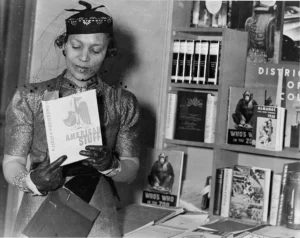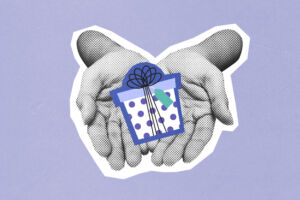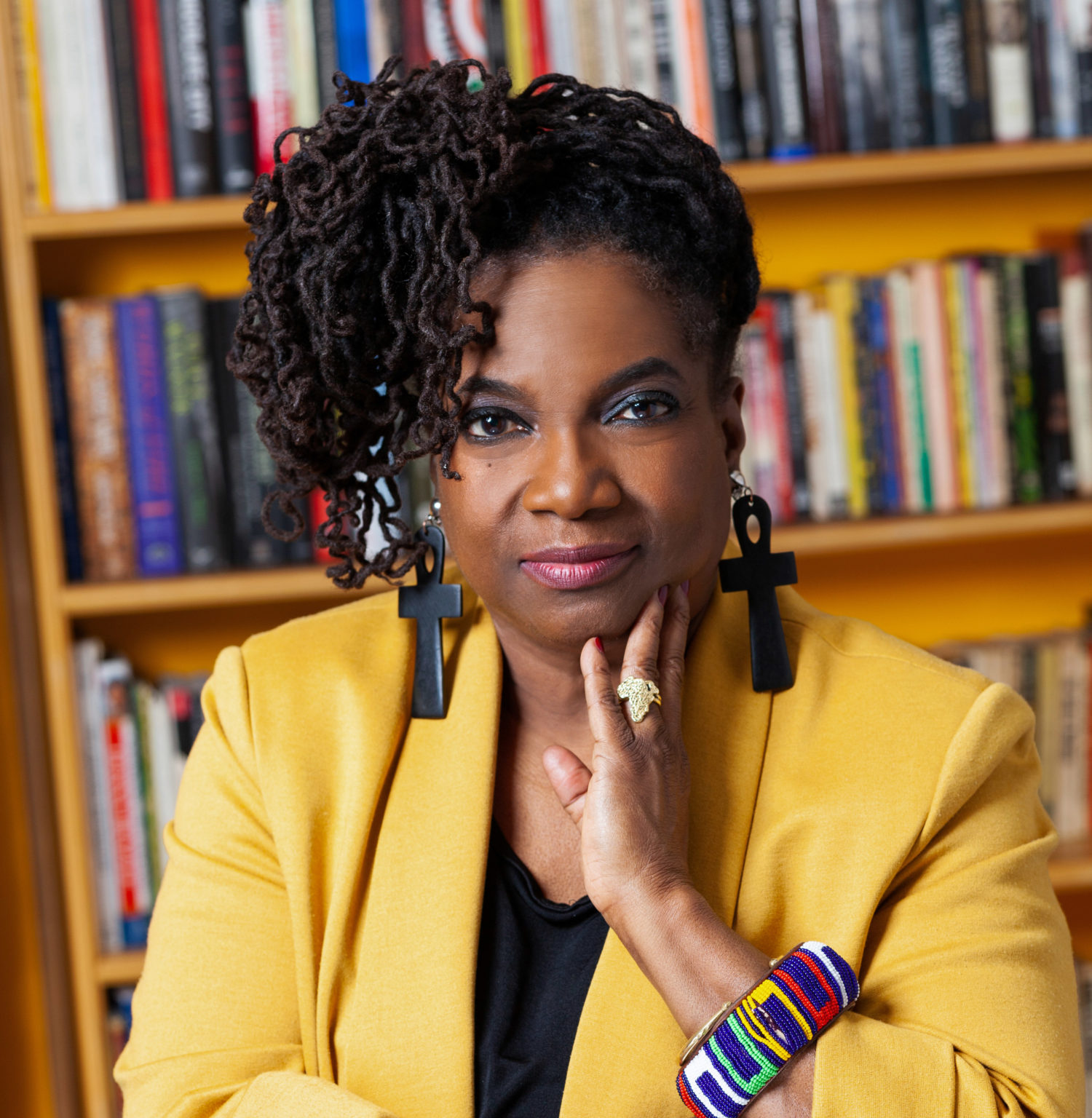 Nkechi Taifa is the author of affirming books for children: Shining Legacy: Storypoems for the Young, So Black Heroes and Heroines Forever will be Sung; The Adventures of Kojo and Ama; and Three Tales of Wisdom, in addition to her memoir — Black Power, Black Lawyer: My Audacious Quest for Justice, and an upcoming book, Reparations on Fire: How and Why it’s Spreading Across America.
Nkechi Taifa is the author of affirming books for children: Shining Legacy: Storypoems for the Young, So Black Heroes and Heroines Forever will be Sung; The Adventures of Kojo and Ama; and Three Tales of Wisdom, in addition to her memoir — Black Power, Black Lawyer: My Audacious Quest for Justice, and an upcoming book, Reparations on Fire: How and Why it’s Spreading Across America.
How fascinating that while the white world mourns a white European queen who presided over the torture of the Mau Mau in Kenya, Hollywood tries its best to depict African women warriors in a masterpiece of a film. Modupe! Thank you! Ase, Ase, Ase!
This film is personal to me for an affirming reason: I have never seen so many beautifully deeply melanated strong powerful positive Black women in one Hollywood film in my life.
I hate to compare, but the fierce sword-wielding Agojie make the warrior men in “Braveheart” look like sorority sisters at a tea party!
This potent military unit is led by my idol Viola Davis, an August Wilson discovery. She’s joined behind the camera by director Gina Maria Prince-Bythewood, who back in the day made a splash with the Hollywood movie about Black male-female relationships called “Love and Basketball.” Both have clearly earned the right to flex the self within.
But it is the skin optics that is the topic that grabs me most. Colorism is the Bruno of the Black community — we don’t like to talk about it. As a Pan Africanist/New Afrikan Nationalist who came of age with Black Power and “Black is Beautiful,” there were conscious Black men who did not shun unadulterated Black women. Although I cannot say that my path to Eldership was paved with non-color conscious stones, I luckily have not suffered overt indignities as I would have in an earlier era. And I am one of those sisters that the great writer Ta-Nehisi Coates describes, those for whom it’s difficult for anyone to guess my age. Forty? Fifty? Ha! Black don’t crack, y’all!
But Hollywood and other American and European-influenced popular culture was — and still is — different.
I love my lighter-skinned sisters and I know that we all suffer the same stings of being Black in a country that sold us all as chattel. Whether we look like the deep chocolate-skinned Davis or like the saltine-toned Prince-Bythewood, we all still catch hell in America’s boardrooms, and are still ignored in a land that worships white womanhood. Just look at the so-called “controversy” over racial inclusion in European dragon fantasy shows such as Amazon’s “Lord of the Rings: The Rings of Power” and HBO’s “Game of Thrones: House of Dragons.” White supremacy doesn’t want the African experience to exist, whether in American-produced Hollywood imaginations or in the reality of American-produced public-school textbooks. Note how both are common-denominator knowledge for children.
But I have always been so, so very starved for affirming images of beautiful dark-skinned women — something I never had growing up — whether on TV shows, commercials, in magazines, or the professional work world –-so much so that, despite being a history major at Howard undergrad — I consciously chose to overlook the brutal role of the Kingdom of Dahomey in its sordid history in the trading of human beings.
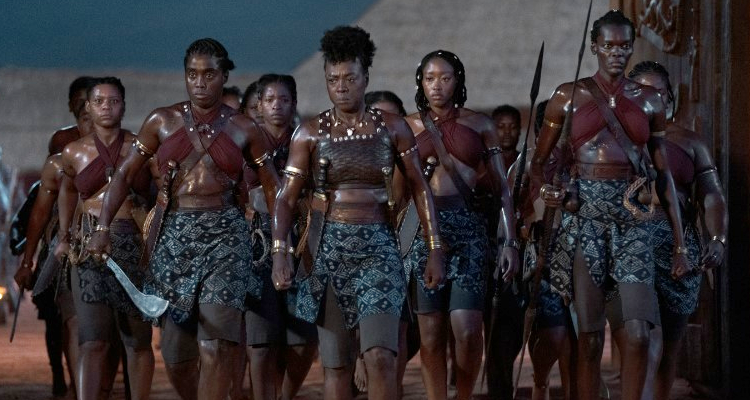
I fed well with The Woman King. I also love that the focus in the film was on Dahomey’s questioning of their role. There is no good slavery, but African slavery of fellow Africans was very different from European slavery of Africans. I loved that the central plot was the Africans getting that message and eventually turning against it. In my mind, they were freeing the captives that Jamie Foxx’s “Django Unchained” didn’t bother to help in his 2012 film!
And freedom was what I felt generating from the Woman King actresses. It was surprising and visually powerful to see someone as glamorous as Black British actress Lashana Lynch, James Bond’s smart, spicy rival in “No Time To Die,” stripped down to her raw, African essence. As Izogie, aunty character to the young warrior Nawi, played with extreme confidence by South African actress Thuso Mbedu, her role was one of the film’s many highlights. I was also happy to see Sheila Atim as Amenza, do something substantial instead of just showing up to sacrifice herself, “Magic Negro-style,” as a friend told me she did for Wong in Marvel’s “Doctor Strange: The Multiverse of Madness.” I also loved the freedom of depicting African religion as expressed in the deep Ifa spiritual tradition imbued within the film.
Hollywood is, at best, a mixed bag of treats. I am a proponent of positive, if problematic, Black images, which puts me in the supporter role of films like “Black Panther” and “Judas and the Black Messiah.” It’s hard to see a film about Fred Hampton that stars the man who betrayed him. It’s hard to champion a film that climaxes watching a white American CIA agent shoot down African revolutionaries. These huge compromises are too hard for many to swallow. It’s why the poet and educator Haki Madhubuti — like me, an advocate for positive Black images and stories for children — has called that first Marvel Panther film “dangerous.”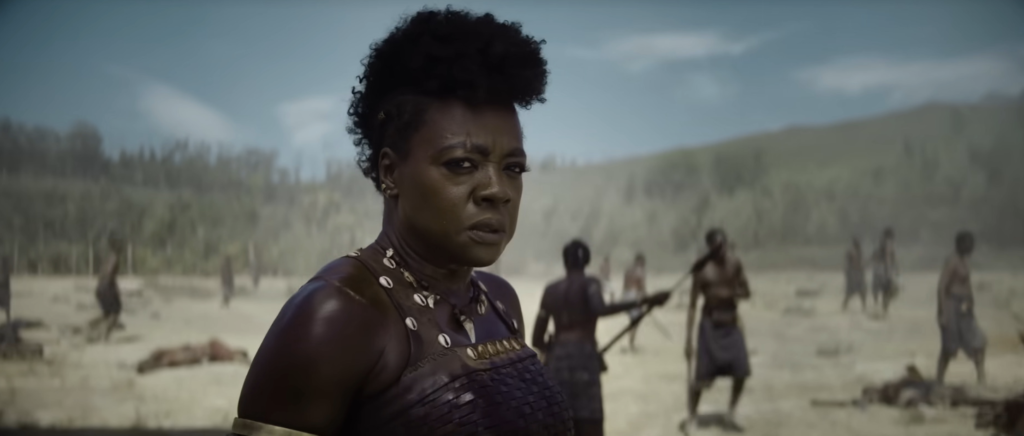
Those compromises are not exempt, sadly, with my current fave. So, alas, a triumph for Hollywood sisterhood still has us in the shadow of the act. “The Woman King” is the brainchild of a blond woman named Maria Bello, who used to play Dr. Anna Del Amico on NBC’s “ER” and Special Agent Jacqueline Sloane on CBS’ “NCIS.” She thought up the idea, pitched it to Davis, and then co-wrote the screenplay with another blond woman, Dana Stevens. White people greenlit this $50 million Hollywood feature film because Blacks, by and large, still don’t have the power to do so. But the film I saw and loved was one where Davis and Prince-Bythewood thankfully and quite obviously had significant input.
Despite this blockbuster success, the fight for positive African images continues. We need more “Woman Kings,” more Dora Milajes and more Shuris, more Davises, more Prince-Bythewoods. With Black people consuming far more Hollywood films than documentaries, there’s plenty of work for all of us to do. But exiting the packed theater that evening, I gleefully drew my imaginary sword, held it up high, and enjoyed a powerful, if temporary, victory.


